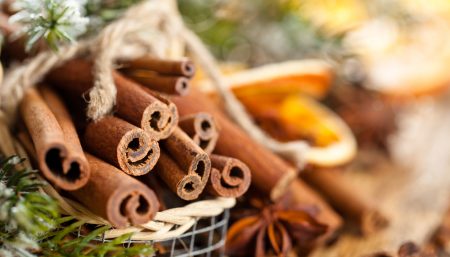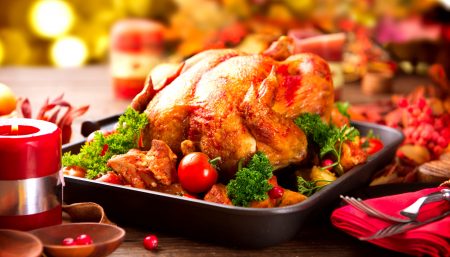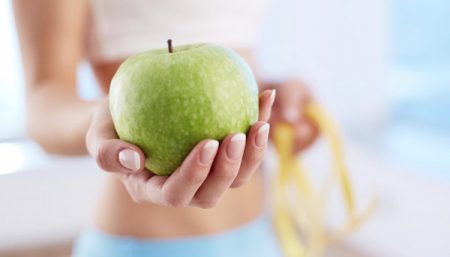With Christmas and Holiday nearing women tend to get nervous of over eating and messing up with their strict routine. Don’t panic! For there are certain festive foods that can be really good for your body, it’s just a matter of choice that can make Christmas feast a really healthy one.
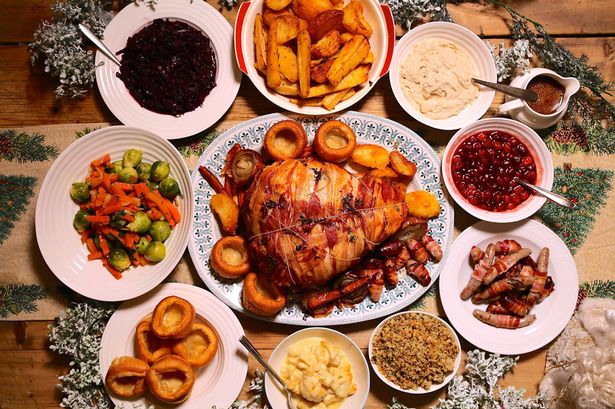
On average, people gain 1 to 2 pounds from fall to spring, mainly during the feasting weeks between Thanksgiving and New Year’s.
![]() Chestnuts: These little nutritional powerhouses are worth credit all to themselves. They are lower in calories than most other nuts (100 grams of walnuts contain over 650 calories, chestnuts have only 170) , are a surprisingly good source of fibre too with around six to eight milligrams of insoluble fibre in every 100 gram serving. They are also the lowest fat nuts around with only around 2 grams of fat per 100 gram serving and they are a good source of vitamin C. Use them to make soups, sauces and stuffing. Slice them onto salad or vegetable dishes for extra crunch or eat them just as they are freshly roasted.
Chestnuts: These little nutritional powerhouses are worth credit all to themselves. They are lower in calories than most other nuts (100 grams of walnuts contain over 650 calories, chestnuts have only 170) , are a surprisingly good source of fibre too with around six to eight milligrams of insoluble fibre in every 100 gram serving. They are also the lowest fat nuts around with only around 2 grams of fat per 100 gram serving and they are a good source of vitamin C. Use them to make soups, sauces and stuffing. Slice them onto salad or vegetable dishes for extra crunch or eat them just as they are freshly roasted.
![]() Dates: A sweet fruit that is perfect braised in stews, chopped up in desserts, or stuffed with cream cheese or almonds. Health benefits include, Low in fat, Good source of fiber and a good source of potassium. Dates are a wonderful snack all by themselves. But make sure you eat them in moderation, as fruits can contain high levels of fructose that can harm your health. For a new twist, try stuffing them with a mixture of chopped raw almonds and walnuts, and raw cream cheese for a delicious, nutritious – and completely unique – hors d’oeuvre.
Dates: A sweet fruit that is perfect braised in stews, chopped up in desserts, or stuffed with cream cheese or almonds. Health benefits include, Low in fat, Good source of fiber and a good source of potassium. Dates are a wonderful snack all by themselves. But make sure you eat them in moderation, as fruits can contain high levels of fructose that can harm your health. For a new twist, try stuffing them with a mixture of chopped raw almonds and walnuts, and raw cream cheese for a delicious, nutritious – and completely unique – hors d’oeuvre.
![]()
Tangerines: Eat morning and afternoon for more than enough immune boosting, disease zapping, bug busting, skin enhancing vitamin C to get you through the day.
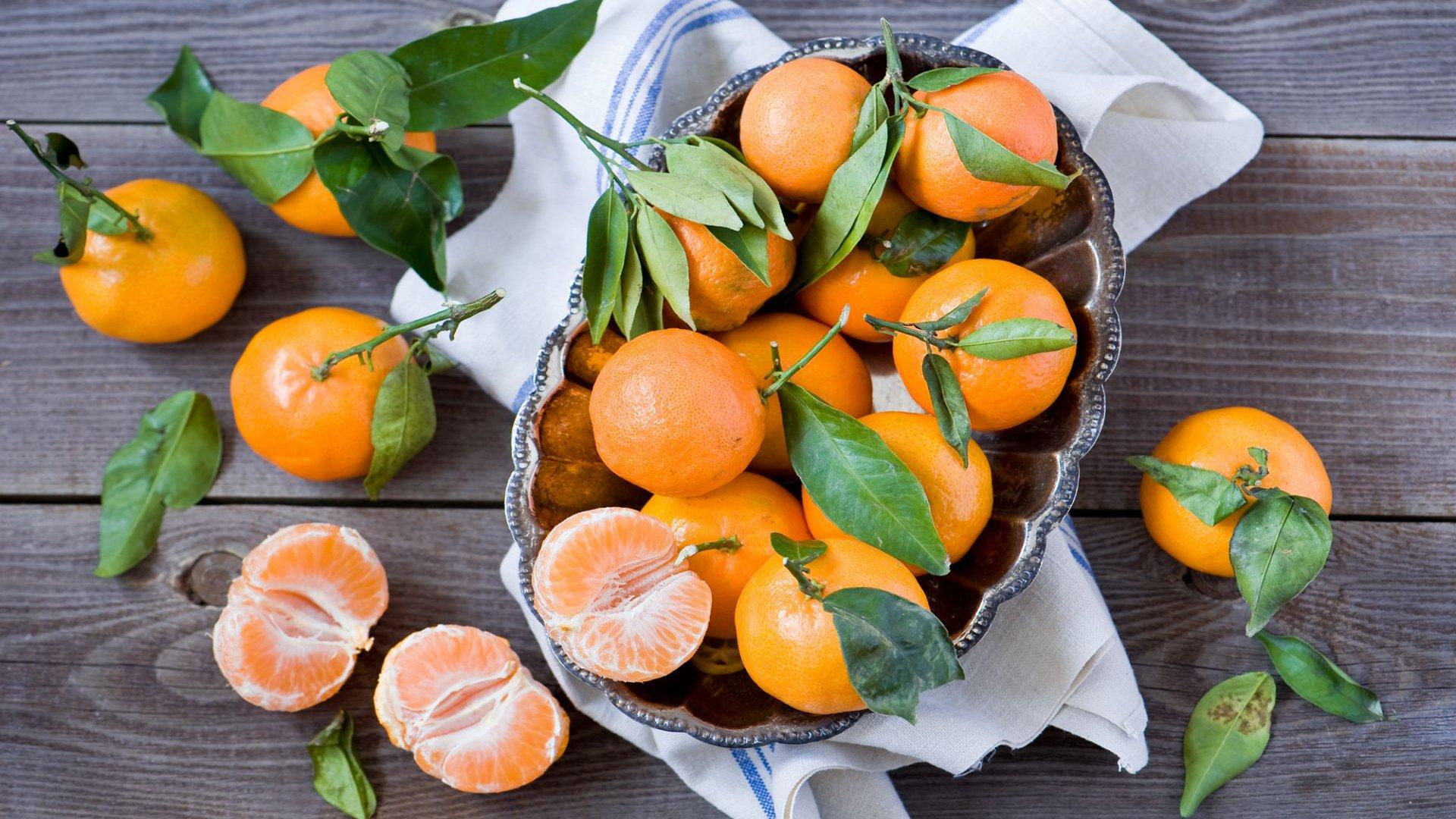
![]() Cinnamon: Cinnamon has great anti-inflammatory properties, helping to fight conditions such as asthma and arthritis. It has been used for years as a digestive aid, helping to relieve heartburn, bloating and gas and it also has amazing anti-bacterial action that can help reduce those nasty bugs that can cause food poisoning. Grinding cinnamon chips into powder yourself is the best way to ensure the freshest cinnamon.
Cinnamon: Cinnamon has great anti-inflammatory properties, helping to fight conditions such as asthma and arthritis. It has been used for years as a digestive aid, helping to relieve heartburn, bloating and gas and it also has amazing anti-bacterial action that can help reduce those nasty bugs that can cause food poisoning. Grinding cinnamon chips into powder yourself is the best way to ensure the freshest cinnamon.
![]()
Turkey: Turkey thigh and breast are a rich source of essential vitamins and minerals, including niacin for a healthy nervous system, Vitamin B6 for efficient blood cell formation, phosphorus for strong bones and teeth and selenium for a healthy immune system. A 100g portion of turkey breast contains over half an adult’s recommended daily intake of niacin and nearly half the recommended daily intake of vitamin B6. Turkey is also low in fat so don’t just save it for Christmas dinner. Use it in your sandwiches, stews, stir fries and curries too.
![]()
Brussel Sprouts: A great source of the antioxidant vitamins A, C and E which keep your immune system strong and your wrinkles at bay and they contain some essential fatty acids. In fact, just 100 calories’ worth of Brussels sprouts provides over 400 milligrams of the omega-3 fatty acid called alpha-linolenic acid (ALA) which is more than one-third of the daily recommended amount.
![]() Salmon: An excellent source of omega 3 fats which help protect against heart disease, high cholesterol and high blood pressure. They also help keep the brain healthy, fighting off depression and protecting against Alzheimer’s disease. Salmon is also a great source of vitamin B12 and selenium, helping to protect against cancer.
Salmon: An excellent source of omega 3 fats which help protect against heart disease, high cholesterol and high blood pressure. They also help keep the brain healthy, fighting off depression and protecting against Alzheimer’s disease. Salmon is also a great source of vitamin B12 and selenium, helping to protect against cancer.
![]() Cranberries: An excellent source of free-radical scavenging antioxidants like vitamins C and E, the berries may help reduce the risk of chronic diseases like cancer, stroke, and heart disease. Solid research also backs up their role in preventing urinary tract infections. Opt for the lower calorie and easy-to-prepare fresh variety, which cooks up in 5 minutes. Squeeze them into your diet this December by adding semi-dried cranberries to your breakfast cereals, cakes, muffins and cookies, drinking cranberry juice either on its own or mixed with fresh orange juice and don’t forget to make your own cranberry sauce by boiling fresh cranberries with a little sugar, fresh orange juice and a bit of freshly grated ginger.
Cranberries: An excellent source of free-radical scavenging antioxidants like vitamins C and E, the berries may help reduce the risk of chronic diseases like cancer, stroke, and heart disease. Solid research also backs up their role in preventing urinary tract infections. Opt for the lower calorie and easy-to-prepare fresh variety, which cooks up in 5 minutes. Squeeze them into your diet this December by adding semi-dried cranberries to your breakfast cereals, cakes, muffins and cookies, drinking cranberry juice either on its own or mixed with fresh orange juice and don’t forget to make your own cranberry sauce by boiling fresh cranberries with a little sugar, fresh orange juice and a bit of freshly grated ginger.
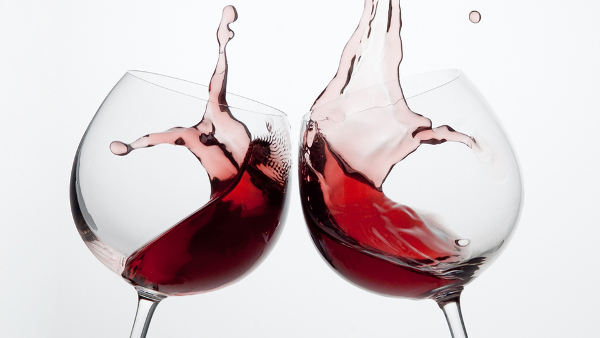
![]()
Red wine: A good source of antioxidants which mop up the destructive free radicals that can cause cell damage and lead to disease. Heating the wine helps to cook off some of the alcohol too and all those spices, particularly the cinnamon contain powerful anti-inflammatory polyphenols which when consumed regularly may help lower your risk of diabetes. Just don’t over do it!
![]() Parsnips: A great source of potassium helping to protect from high blood pressure. They also contain good levels of folate which helps lower levels of homocysteine, an amino acid associated with increased risk of heart disease.
Parsnips: A great source of potassium helping to protect from high blood pressure. They also contain good levels of folate which helps lower levels of homocysteine, an amino acid associated with increased risk of heart disease.
To fight holiday weight gain, aim to maintain, instead of gain. Amp up your activity level at the same time you indulge in seasonal treats.
Disclaimer
The Content is not intended to be a substitute for professional medical advice, diagnosis, or treatment. Always seek the advice of your physician or other qualified health provider with any questions you may have regarding a medical condition.
